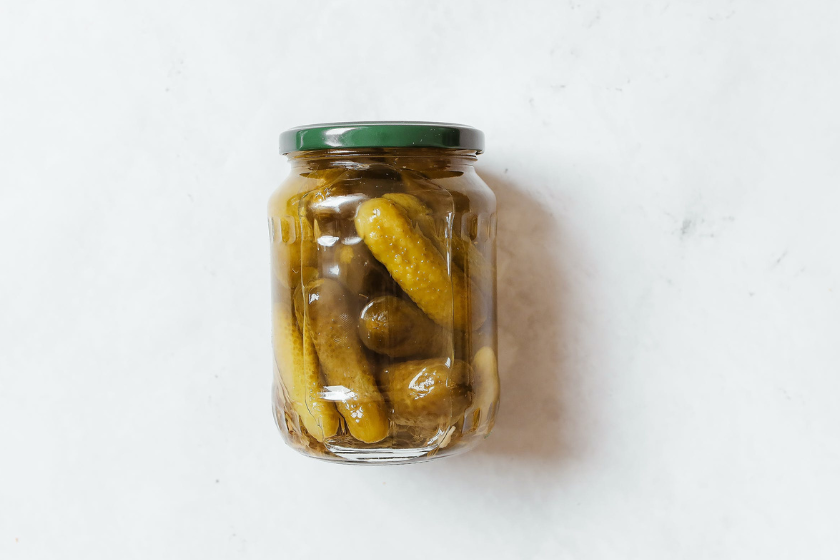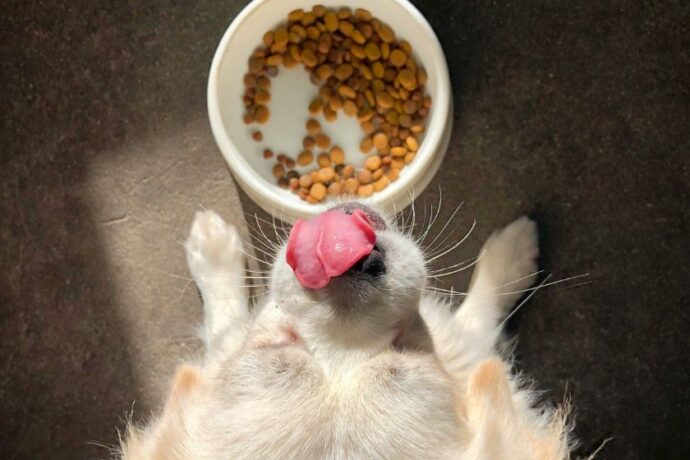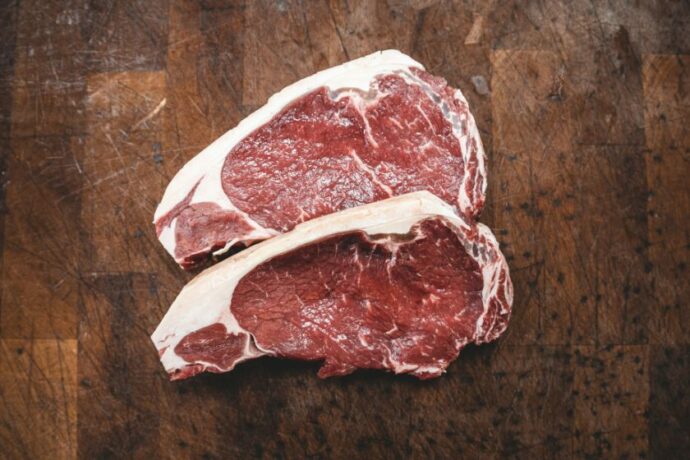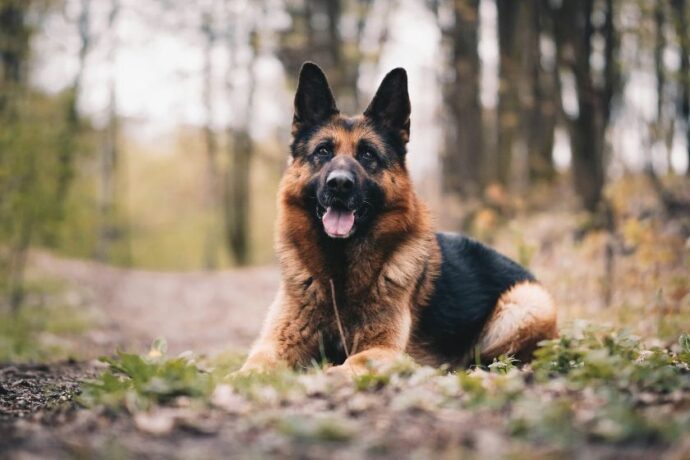
Does your dog love crunching on a pickle? Find out whether this snack is okay for your dog before you share too many.
Can dogs eat pickles? Since pickles are merely fermented cucumbers, they are safe for your dog to eat. However, it’s important to consider the other ingredients that a manufacturer adds to their pickle recipe. Certain ingredients, notably sugar and sodium, can pose health threats to your dog. For this reason, it’s wise to limit the number of pickles you feed to your furry friend.
What Health Benefits and Dangers Will Affect Your Dog?
Pickles are nutrient-rich, making them as beneficial to your dog’s health as they are to people. For example, the vitamin K and calcium in pickles help promote better bone health. Pickles also contain potassium, which can improve nerve functioning, and vitamin C, which acts as an antioxidant to keep cells from suffering damage.
The fermentation process used to make pickles from cucumbers results in probiotics. These microorganisms are helpful once they enter the gastrointestinal tract. They act to promote better gut health and improve the digestive process.
In spite of the many health benefits, pickles can also harm your dog. For instance, the brine or skin of the pickle is naturally loaded with sodium. Too much sodium in your dog’s diet can lead to hypertension or high blood pressure. Excessive sodium can also damage your dog’s heart.
Can dogs have pickles to eat? While a couple of plain pickles every now and then should be fine, avoid feeding your dog pickles with extra seasoning. Some ingredients commonly found in pickles that are toxic for dogs to consume include garlic, onion, spicy peppers, and nutmeg.
You should additionally consider the sugar content in pickles since too much sugar can lead to weight problems and diabetes. Sugar-free pickles may be a worse option for your dog, however. That’s because manufacturers often replace natural sugar with an artificial sweetener.
Xylitol is a common artificial sweetener used in the pickling process. While people can consume it, this sweetener is toxic for dogs. If your dog consumes anything with xylitol in it, it may need immediate medical care.
Is There a Limit to How Many Pickles Your Dog Can Eat?
Can dogs eat pickles in large quantities? Sharing a couple of pickles with your dog should be fine, but try to avoid making this a regular practice. The additives in pickles will contribute to health problems for your dog if it consistently eats them. Especially if your dog is overweight, diabetic, or suffers from other health issues, pickles can be quite hazardous.
When choosing pickles that you can share with your dog, select dill instead of any sweetened type of pickle. This will provide you with an option that includes less sugar and zero artificial sweeteners.
While it’s okay for dogs to eat pickles, it’s very important that you don’t let your dog drink the juice from the pickle jar. Pickle juice results from the sodium and other elements settling in the water. This means that it contains a higher concentration of sodium and other harmful ingredients than is present in the pickles themselves.
Know the Signs That Your Dog Reacts Badly to Pickles
Can dogs eat pickles without suffering bad reactions? In most cases, it will be safe for your dog to have a few slices of a pickle. The first time you share a pickle with your dog, give them one or two slices and stay alert to signs of a reaction. Your dog might have an allergy that you haven’t discovered.
Some signs of a pickle allergy include:
- Nausea and vomiting
- Stool changes, such as diarrhea or constipation
- Difficulty breathing
- Excessive or sudden scratching
- Dehydration (resulting from too much sodium)
Additionally, avoid feeding pickles or any vegetable to a pregnant or nursing female dog. Chemical compounds in these foods can cause pregnancy complications or alter the composition of the mother’s breast milk. If your veterinarian has provided a diet for your pregnant or nursing female dog, follow it precisely.
What Similar Foods Can Your Dog Enjoy?
When you ask the question, “Do dogs eat pickles?” and discover the conditions involved in the answer, you might decide to avoid this food altogether. In that case, there are plenty of alternatives available that are safe for dogs.
Cucumbers
If you want all the health benefits of pickles with fewer hazards, cucumbers make a better choice. You can also eliminate your concern over the sodium content by peeling the cucumber before feeding it to your pet.
Carrots
One of the reasons your dog seems to enjoy pickles so much is that they’re crisp and crunchy. You can provide that same texture with carrots. This vegetable is high in fiber and low in calories, providing an acceptable snack for any dog.
Celery
There are several reasons why you’ll find celery chews in your favorite pet store. Celery is highly effective at fighting bad doggy breath odor. And since it contains vitamins A, B, and C, this snack will also promote better heart health for your dog. It may even assist in preventing some types of cancer.
Cabbage
You can freely share cabbage with your dog. The nutrients and antioxidants in cabbage (and Brussels sprouts) are beneficial to human and canine health alike. However, before you offer this as a frequent snack, be aware that these foods cause excessive gas in both people and dogs.



